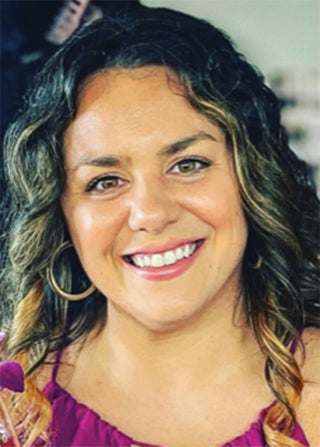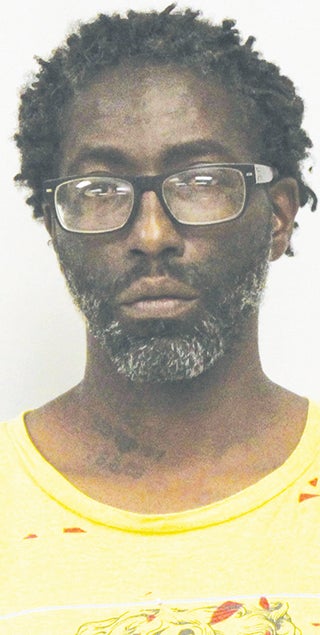Man tells judge that yoga, meditation give him same feeling as LSD
Published 2:26 pm Friday, March 19, 2021
|
Getting your Trinity Audio player ready...
|
A South Carolina man who lived an alternative lifestyle that included the use of hallucinagenic drugs was sentenced in Davie Superior Court earlier this month.
The man – Christopher Dustin Owens – told the judge that he has turned his life around while in jail awaiting trial. He said that he now uses yoga and meditation for the same experiences.
In July 2019, a local teen, Brandon Chance Hall, who was 16 at the time, was convicted for his role in the sale of LSD to Davie residents, including at least one dose to a high school student.
Hall was on the bottom rung of an operation that included Marco Sevilla-Hernandez, COwens, and Ronald Williams. Hall obtained the drugs from Sevilla-Hernandez, who lived in Forsyth County. Sevilla-Hernandez got the drugs from Owens, who lived in Lancaster, S.C., and Owens got them from the chemist who created them, Ronald Williams of Loveland, Colo.
Hall was sentenced to 35 to 51 months; Sevilla-Hernandez is in jail awaiting prosecution. Williams was sentenced in December 2020 to 70 to 93 months in prison.
Last week, it was Owens’ turn in court.
With his attorney Brandy Koontz, Owens, who is 26, listened as Assistant DA John Bandle, who oversaw the investigation that began in 2018, laid out the basis for the charges against Owens, who Bandle called a “mid-level LSD dealer.”
In the fall of 2018, an undercover officer bought LSD from Hall. During a buy-bust Oct. 9, 2018, Hall sold the officer 500 units of the drug and was arrested. A joint investigation by the Mocksville Police Department, Forsyth County Sheriff’s Department, The Department of Homeland Security, the Rowan County Sheriff’s Department, as well as other state and federal agencies began, and working undercover, Det. Matt Leonard with Mocksville Police bought LSD from Sevilla-Hernandez. He traveled with Sevilla-Hernandez to South Carolina to meet with Owens and buy drugs from him, eventually resulting in Owens’ arrest in Charlotte.
At the time of Owens’ arrest, said Bandle: “Virtually no information was known by Detective Leonard about the origin source of the seized/purchased LSD nor the manufacturing location of the chemist.”
Following his arrest, Owens provided hours of recorded investigative testimony.
“No formal or informal deal on his North Carolina charges was made with Owens at the time of the decision to give testimony. Instead, the state, by and through myself, agreed that any truthful testimony would be considered substantial assistance, that both myself and Detective Leonard would avail ourselves to testify to any substantial assistance should Mr. Owens be prosecuted by authorities in South Carolina and that no formal deal would be made until the conclusion of Mr. Williams’ case,” Bandle told Judge William Wood. “Mr. Owens earned the respect from the state given the enormous amount of testimony he gave. But for his verified, detailed, and truthful testimony, the prosecution of Mr. Williams would have been impossible.”
Bandle said Owens’ decision to provide information was fueled by being told by investigators that the drugs had been sold to not only high school students but also, according to Sevilla-Hernandez, to middle school aged children.
“Mr. Owens became extremely upset at this knowledge. He said he would help in any trial or investigation into Sevilla-Hernandez even though it was a downstream prosecution that was not likely to help his sentencing at all.”
Owens, who was a user of LSD, profited little from his sales. In fact, Bandle said, any money he made was used to buy more LSD and to cover the bare necessities for living.
“He provided extensive information about his experiences and knowledge of LSD use and culture. Much of the information was new and educational to the investigators involved. I’ve prosecuted these cases for decades and I learned things I’d never heard before,” Bandle said.
He described Owens as living a “very alternative lifestyle focused on hallucinogenic and psychedelic drug use.”
Koontz said Owens used LSD “for spiritual and religious experiences. He wanted to open people’s minds and build a culture of acceptance. There was no malicious intent, and he has no intention of ever returning to this culture or lifestyle of using drugs.”
She said Owens was the first client she’d ever had who told her incarceration had been a positive experience. Owens has hopes of going to college and wants to pursue an education while incarcerated. His mother, who also struggled with drug addiction but had been clean for three years, unexpectedly died in December and Bandle helped make it possible for Owens to go to South Carolina to be with family.
Koontz called Owens “a prime example of how the system can reform people.”
She said she is the only person he knows in this state and asked that he be incarcerated in Davidson County so she is able to stay in touch with him. Bandle and Koontz asked that Owens not be housed with the co-defendants, for safety reasons.
Owens told Wood: “There is a real spiritual experience that can be found in using psychedelics. I’ve had a couple of very profound experiences using them, and I know that’s something people may not understand.”
He said while he has been in jail, he has learned to use yoga and meditation to achieve the same feelings LSD gave him and no longer has a need for the drug.
“There will never be a next time for me.”
He apologized to Wood “for going on so long” and Wood told him no apology was necessary.
“I heard every word you said. If you hadn’t gotten on board with your attorney’s advice, you’d probably be going to prison for decades. I hope you appreciate your lawyer,” he said.
On a charge of conspiracy to traffic LSD by sale, Owens was sentenced to 48 to 67 months in prison, with credit given for the 795 days he has been in jail awaiting trial. Work release is recommended as Owens has no prior criminal history.
Wood said Owens must obtain a substance abuse assessment and treatment while in prison and take advantage of any educational opportunities available. He must submit a DNA sample, pay court costs and an attorney fee of $1,835. He is not to be housed with the co-defendants in the case.
“I commend the parties for working together on this, and I believe this agreement is fair to all the parties involved and is entirely appropriate,” Wood said.



